- Best for overall data management and governance: Ataccama ONE
- Best for complex data landscapes: Collibra Data Governance
- Best for strict regulatory compliance: IBM Data Governance
- Best for visibility into enterprise data: erwin by Quest
- Best for data analytics: Precisely Data360 Govern
- Best for digital transformation: Informatica Data Governance
- Best for data risks management: OneTrust Data Governance
- Best for centralized data management: SAP Master Data Governance
- Best for BI requirements: Oracle Enterprise Metadata Management
- Best for automated data lineage: Atlan
- Best for data governance workflow automation: Alation
As companies continue to grow and rely on data to make business decisions, it is more important than ever for them to implement a strategy for their data management.
Organizations today can’t afford downtime caused by ineffective data governance strategies. With so much on the line, businesses must use appropriate data governance tools and software to maintain control of their company’s most valuable asset: data.
Jump to:
- Top data governance software comparison
- Best data governance tools
- What is data governance?
- Key features of data governance platforms
- What are the benefits of using data governance solutions?
- How to select a data governance tool
- Review methodology
Top data governance software comparison
The right data governance tools enable companies to meet their regulatory requirements while making it easy for employees to work efficiently. Below are some top-rated data governance tools and software solutions for enterprises to consider:
| Software | Best for | Business glossary | Data lineage | Metadata management | Pricing |
|---|---|---|---|---|---|
| Ataccama ONE | All-encompassing data management and governance | Yes | Yes | Yes | $90,000 for 12 months |
| Collibra Data Governance | Complex data landscapes | Yes | Yes | Yes | $170,000 for 12 months |
| IBM Data Governance | Strict regulatory compliance requirements | Yes | Yes | Yes | $18,720 per month |
| erwin by Quest | Visibility into enterprise data | Yes | Yes | Yes | Unavailable |
| Precisely Data360 Govern | Data analytics | Yes | Yes | Yes | Unavailable |
| Informatica Data Governance | Digital transformation | Yes | Yes | Yes | Unavailable |
| OneTrust Data Governance | Data risk management | Yes | Yes | Yes | Unavailable |
| SAP Master Data Governance | Centralized management of master data | Yes | Yes | Yes | Starts at €53 per 5,000 objects per month |
| Oracle Enterprise Metadata Management | Businesses that rely on business intelligence tools | Yes | Yes | Yes | Unavailable |
| Atlan | Automated data lineage | Yes | Yes | Yes | $120,000 for 12 months |
| Alation | Data governance workflow automation | Yes | Yes | Yes | Starts at $60,000 |
Featured partners
Ataccama ONE is an AI-powered, enterprise-class, self-driven data management and governance platform that provides users with a single source of truth for all company data. It enables companies to drive digital transformation initiatives by providing insights into their data. The software comes in on-premises, cloud and hybrid formats to help make processes more efficient, effective and consistent while customizing them to specific business infrastructures. It automates workflows to reduce manual processes and make them more effective for data professionals. Data stewards, data governance professionals, data analysts, data scientists and data engineers can all benefit from this tool. Ataccama ONE doesn’t advertise its product pricing on its website. It encourages buyers to contact the company for pricing. Publicly available pricing details show that Ataccama ONE Unified Data Management Cloud Platform costs $90,000 for 12 months, while Ataccama Upgrade Unit costs $10,000 per unit.
Ataccama ONE: Best for overall data management and governance

Pricing
Key differentiators
Pros
Cons
Collibra Data Governance software helps organizations maintain their data quality and security. It is an all-in-one solution that includes a business glossary, stewardship management, reference data management, centralized policy management, a data dictionary and intuitive workflows. It also provides necessary insights for ensuring compliance with regulatory mandates such as GDPR. Collibra doesn’t advertise its rates on its website. It encourages buyers to speak with a Collibra expert and get a personalized demo of the Collibra Data Intelligence Cloud. Publicly available information shows that the tool costs for various durations are as follows:
Collibra Data Governance: Best for complex data landscapes
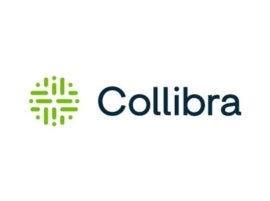
Pricing
Key differentiators
Pros
Cons
IBM Data Governance offers a solution that protects data confidentiality, integrity and availability by integrating with existing systems. This helps businesses ensure their data is reliable while meeting regulatory requirements. The solution works with structured and unstructured data and can be customized based on your organization’s needs. With this software, companies can communicate in one unified business language, keep records, create rules and policies and track their data sources. Pricing for the IBM data governance solution isn’t publicly listed on IBM’s website. However, publicly available data on AWS Marketplace shows the pricing of IBM Cloud Pak for Data, which is the parent product for the data governance solution, is as follows: For more information, read the in-depth IBM Data Governance tools review.
IBM Data Governance: Best for strict regulatory compliance
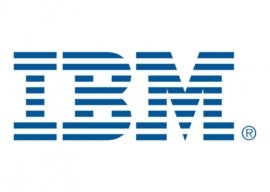
Pricing
Key differentiators
Pros
Cons
erwin Data Intelligence by Quest is a data governance solution that helps businesses run smoothly by giving them visibility into their data assets. The solution allows companies to track the data they are collecting and how it’s being used. They can also use different metrics to ensure that data policies and best practices are followed. The software combines data catalog and literacy capabilities with built-in automation to view enterprise metadata landscapes comprehensively. In addition, the software’s data profiling capability allows organizations to identify sensitive data assets and monitor data quality. erwin by Quest doesn’t advertise pricing on its websites. Interested buyers are required to request for pricing to get a custom quote. A user stated on one review site that they spend about $150,000 per year on the solution. Your actual cost may be less or more depending on your company’s use case, number of stewards and other factors unique to your organization.
erwin by Quest: Best for visibility into enterprise data
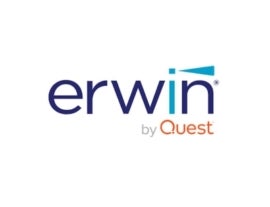
Pricing
Key differentiators
Pros
Cons
Precisely Data360 Govern is an enterprise-grade data governance, catalog and metadata management solution. Users can collect, organize, store and analyze information about their enterprise’s digital assets. The tool automates governance and stewardship tasks to answer data source, usage, meaning, ownership and quality questions. In addition, it facilitates collaborative discovery, reporting and auditing activities that drive compliance with regulations such as HIPAA and GDPR. Interested buyers are required to request a demo to get a better understanding of the tool, and custom quote is generated afterward based on their needs.
Precisely Data360 Govern: Best for data analytics
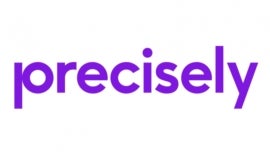
Pricing
Key differentiators
Pros
Cons
Informatica provides a data governance solution via Axon Data Governance, which integrates all elements of the enterprise on a single, streamlined platform. It uses AI-driven automation to aid stewards with data discovery, quality evaluation and communication. The software allows users to manage their company’s metadata and identify who is responsible for any specific asset. It also allows users to monitor change and data quality and become more aware of what is happening in their environment. Buyers should contact the Informatica sales team for custom quotes. You can also buy the solution on Azure or AWS Marketplace. Your rate on the marketplace will vary based on your region.
Informatica Data Governance: Best for digital transformation
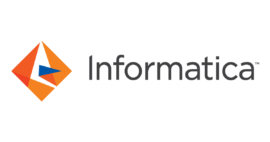
Pricing
Key differentiators
Pros
Cons
OneTrust data governance software enables users to define data policies such as user access, data retention and residency, data minimization and data protection. Collaborating across business functions can reduce the risk of data breaches or flag violations. OneTrust combines the capabilities of automated data discovery and classification to classify personal and non-personal data so they meet regulatory requirements. The solution also provides a centralized management console that easily identifies any privacy risks using visual dashboards and reports. OneTrust doesn’t advertise its price on its website. Interested buyers are required to book a demo to speak with an expert. Pricing will be provided based on your unique use case.
OneTrust Data Governance: Best for data risks management
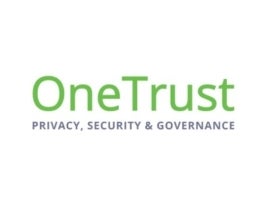
Pricing
Key differentiators
Pros
Cons
SAP Master Data Governance is a data management solution that nurtures enterprise-wide insight into an organization’s data and other key business information. The solution integrates an organization’s various information sources into one centralized environment. According to SAP, its application helps you pull together master data and manage it centrally using a master data management layer based on the SAP Business Technology Platform. The Master Data Governance application comprises several integrated modules, including change management, data quality management and metadata management. These modules work together seamlessly to maintain consistency across your systems while providing insights into your organization’s master data assets. SAP Master Data Governance pricing starts at €53 per 5,000 objects per month. Your actual rate depends on your needs. Contact the SAP sales team for personalized quotes.
SAP Master Data Governance: Best for centralized data management
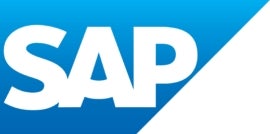
Pricing
Key differentiators
Pros
Cons
Oracle Enterprise Metadata Management is a metadata management platform that can harvest and catalog metadata from various metadata providers, including BI, ETL, Hadoop, relational and data modeling. OEMM offers features that help the data governance process, including annotations and tagging; multimedia attachments (documents, videos, presentation, code, etc.); and linking URLs for email, blogging and social networking. It allows for interactive searching and browsing of the metadata as well as providing data lineage, impact analysis, semantic definition and semantic usage analysis for any metadata asset within the catalog. Pricing for this solution is available on request.
Oracle Enterprise Metadata Management: Best for BI requirements
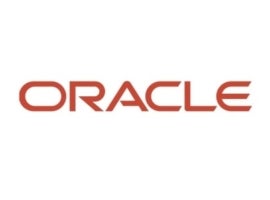
Pricing
Key differentiators
Pros
Cons
Atlan is a data workspace designed to help data teams discover, collaborate and automate data assets. It provides features such as data cataloging and discovery, data exploration, data profiling, data lineage and data governance capabilities. Atlan integrates with popular tools like Snowflake, Redshift, Databricks, Looker and Power BI. Atlan requires buyers to contact the company for custom quotes. Publicly available data shows the tool’s costs for one to three years:
Atlan: Best for automated data lineage
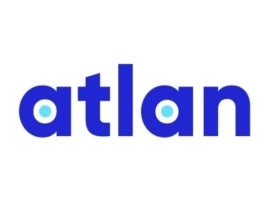
Pricing
Key differentiators
Pros
Cons
Alation started as a data catalog platform to help businesses inventory and access their data. It is now a platform for several data intelligence products, including data search and discovery, data governance, data stewardship, analytics and digital transformation. According to Alation, its data governance app centrally automates and manages policies, workflow and stewardship activities. In addition, this tool provides deep insights into the state of an organization’s data and identifies risk areas early on to mitigate those risks. Alation doesn’t advertise its rates on its website. You can book a demo to speak with an expert about your needs and learn more about the platform. Custom quotes will be sent to you based on your needs. To get an idea of the product cost, the Alation Data Catalog tool has a $60,000 one-time payment per year.
Alation: Best for data governance workflow automation
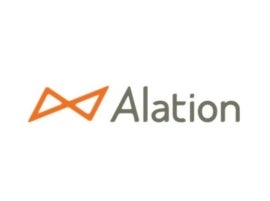
Pricing
Key differentiators
Pros
Cons
What is data governance?
Data governance refers to the administration of data across an organization. The process ensures data integrity, availability, scalability, usability, security and regulatory compliance while making sure that all changes are well-communicated, documented and verified.
SEE: Take advantage of TechRepublic Premium’s database engineer hiring kit.
Data governance is an organization-wide task that often falls under the purview of IT departments or data management teams. Companies that do not have a formalized system for data governance will often suffer from problems such as duplicate or lost records or noncompliance with industry regulations, which can be detrimental to an organization’s goals and objectives.
Key features of data governance platforms
Data governance platforms offer several features that ensure your enterprise is running smoothly. Here are some capabilities you should look for in a data governance platform:
Data ownership and stewardship
Data ownership is a key element of the data governance framework. It defines and establishes roles and responsibility and decision-making authority over data and determines how data is collected, stored, processed and shared.
Data owners are responsible for approving data glossaries and definitions, supervising operations that are directly relevant to data quality and evaluating and approving the master data management strategy.
Stewardship relates to the responsible management and care of data. It includes the activities and practices that ensure the protection, integrity and appropriate use of data. A data steward is a subject matter expert with a good understanding of a particular data set.
Business glossary
To maintain terminology uniformity and consistency across your company, your data governance tool should have the ability to create a business glossary. A business glossary is a comprehensive list of terms and definitions that are specific to your organization. The glossary includes terms, acronyms, abbreviations and jargon that are commonly used in the business context.
Automated data lineage
With automated data lineage capability, data flow within a system or across multiple systems is automatically tracked and captured. It involves identifying the origin, transformation and destination of data as it moves through different processes, applications and databases.
Data discovery
Data discovery is often used to understand trends and patterns in the data as it involves the collection and evaluation of data from various sources, such as databases, spreadsheets and data warehouses, to identify relationships, outliers and patterns that may not be immediately apparent. It aims to identify and extract valuable information from the data that can be used for decision-making, problem-solving and business intelligence purposes.
Metadata management
Metadata management is a crucial component of data governance as it enables users to derive value from the data they have at their disposal. It involves the management and organization of metadata, which refers to the information about the data itself. Metadata provides context and describes the characteristics, location, lineage and usage of data.
What are the benefits of using data governance solutions?
A data governance solution ensures that all company data syncs with the organization’s objectives. It also ensures that all relevant data is available for decision-making, analytics, reporting, compliance, governance, security and risk management. Benefits of using data governance solutions include:
Higher data quality
Good data is accurate, relevant, timely, complete, consistent and relevant to the purpose for which it was collected. Conversely, insufficient data leads to bad decisions, increased costs and time spent fixing errors that could have been avoided using better data. Data governance tools are designed to increase data quality and overall organization of data assets.
Improved regulatory compliance
Depending on your industry, adhering to regulatory compliance standards can be difficult without the proper tools and resources. Data governance tools help organizations balance the needs of customers, employees, partners and shareholders with regulatory requirements.
Increased revenue
Data governance solutions will help you increase revenue by generating insights about your business. These insights can be used to make more educated marketing and product decisions, improve customer service by understanding customers’ needs and provide more personalized experiences.
Better decision-making
With access to all of the information they need in one centralized location, managers can make faster and smarter decisions that lead to improved business performance across departments.
Optimized business performance
Without any obstacles in the way of analyzing and gaining insights from data, leaders can take charge and guide their teams toward truly data-driven goals.
How to select a data governance tool
Selecting a data governance tool for your enterprise requires an understanding of what you need it to do for you. The following steps can help you narrow down your options and make an informed decision:
- Determine the goals of your organization’s data governance strategy.
- Research vendors.
- Compare prices.
- Evaluate their contract language.
- Test, test, test.
Be sure to test the product before deciding. You don’t want to buy a tool that doesn’t work or isn’t compatible with your technology stack.
Review methodology
We analyzed and evaluated various data governance tools based on the following criteria: features and functionalities, scalability and integration, data governance maturity, flexibility and customization and the vendor’s reputation and customer satisfaction.
We collected primary data about features, functionality and use cases from each software provider’s websites and gathered customer experience, customization and flexibility information from user feedback review sites to learn about each solution’s usability.
Ready to commit to a vendor and sign a contract? Take a look at our service-level agreement policy template to ensure your contract is comprehensive.




